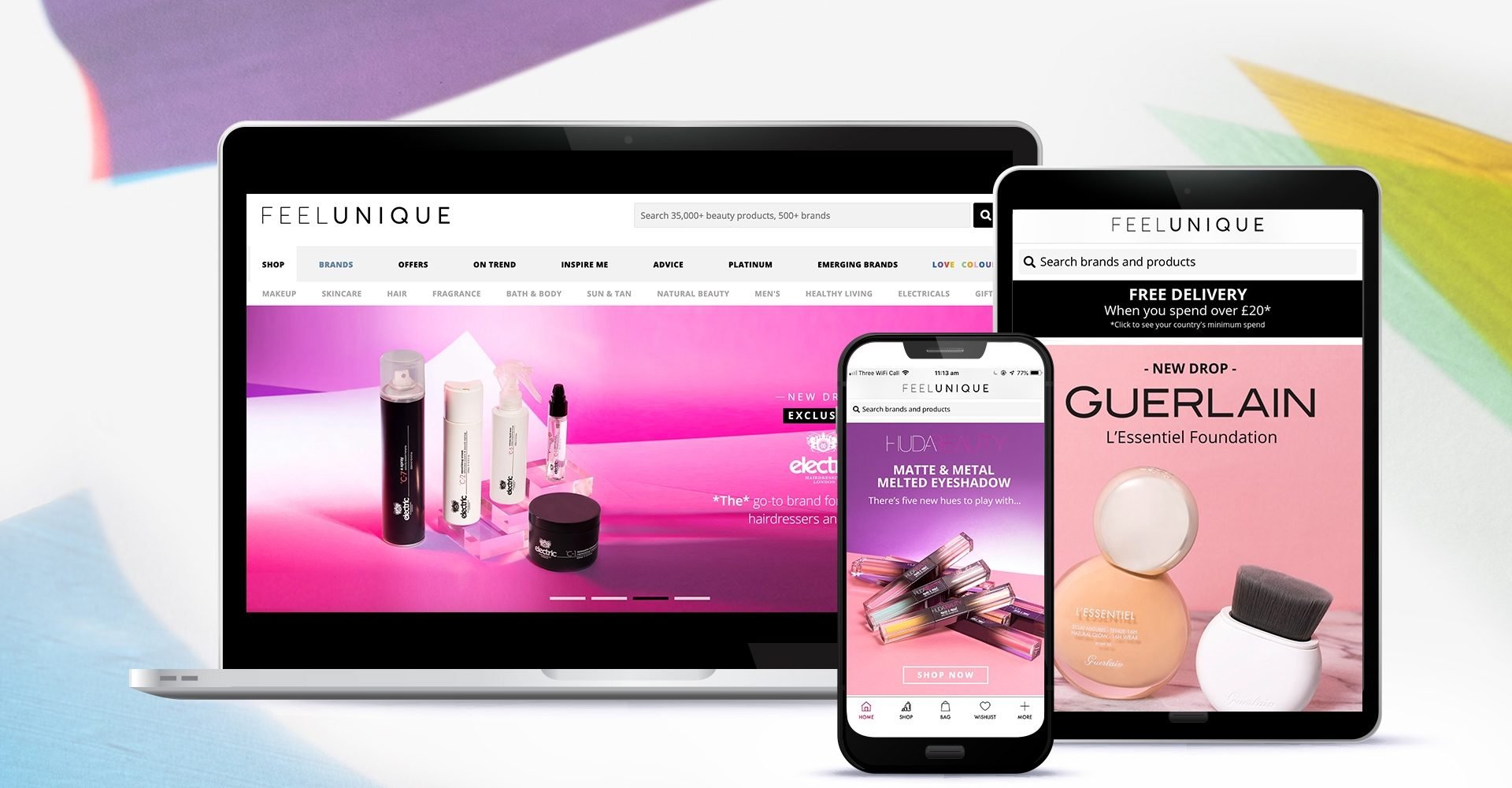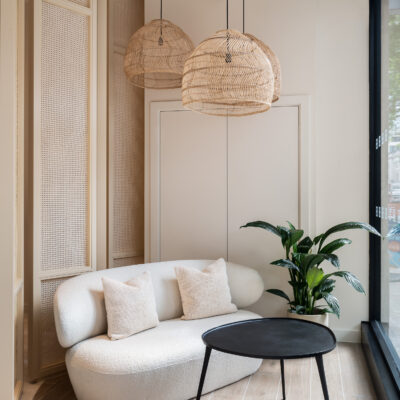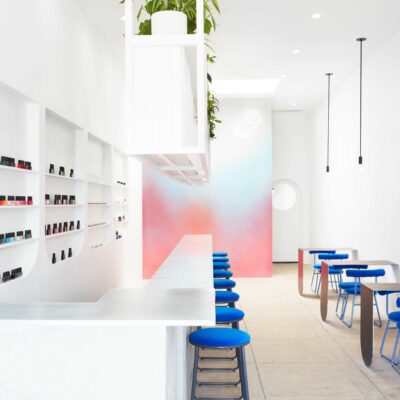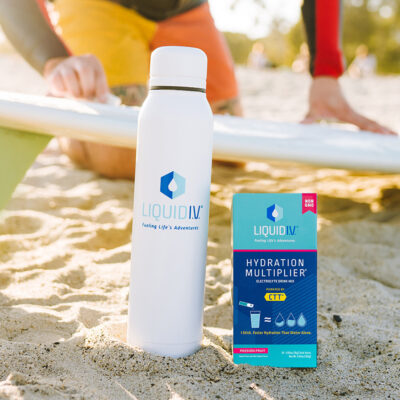
The Exit Interview: Outgoing CEO Joël Palix Takes Stock Of His Five-Year Tenure At Feelunique
When Joël Palix was appointed CEO of Feelunique five years ago, he was tasked with putting the beauty e-tailer on a path to vigorous growth. It’s marched down that path. Since Palix, former president of Clarins Fragrance Group, assumed his post, Feelunique’s revenues have multiplied threefold and are on pace to surpass 100 million pounds or nearly $131 million at the current exchange rate for its fiscal year that ends this month. It’s more than doubled the number of products it sells to 35,000 from over 500 brands, including ones owned by big conglomerates (e.g., Tom Ford, Dior, Nars and Benefit) and entrepreneurial startups like Plant Apothecary, Ikoo, Le Prunier and Antonym it discovered through a collaboration with Indie Beauty Media Group, owner of Beauty Independent and Indie Beauty Expo. Feelunique has extended its reach from Europe to China, established an infrastructure to ship to some 120 countries worldwide, accumulated 1.6 million social media followers, and drawn 130,000 website visits from primarily millennial customers snapping up 15,000 products daily.
With those accomplishments marking his Feelunique tenure, Palix has decided to move on to other professional pursuits in the coming months. He’s set to hand his over responsibilities to COO Jim Buckle and CMO Jennifer Roebuck, but remain a shareholder. Before stepping down, Palix carved out time to speak to Beauty Independent about Amazon, Brexit uncertainty, rising digital acquisition costs, discounting, exclusivity (or lack thereof), and the state of the Chinese consumer.
What were your goals when you joined Feelunique?
I was appointed by the private equity fund Palamon because I had experience in the industry, and I understood CRM, e-commerce and the direct-to-consumer business. Palamon is a growth fund, and it invests in European companies that have a record of fast growth and can become European leaders. Obviously, that was going to be achieved through market expansion, but also through an increase in the catalog of products available on the site. My goals were first and foremost for us to become a real destination for beauty and make the company bigger. There was also work to be done on the organization because the company was located in Jersey, which is a small island between France and the U.K. It was clear that, for the business to scale up, we would have to relocate the company to London to attract the right talent and to have a streamlined operation for deliveries to our customers. To summarize my goals, they were to expand internationally, bring on new brands, and strengthen the organization.

What are major milestones the company reached during your tenure?
Maybe I will start with the third goal. We did reorganize the company, transfer the headquarters to London and move our distribution center. I put in a diverse executive team with parity between men and women, which was something that was needed in the business. I brought in talent, people that were experts in their fields. The latest addition is Jennifer Roebuck as our CMO. She has a fashion background and is a real expert in marketing. I also brought in Nigel Lawmon, our commercial director who had experience at Debenhams and other retailers. Building the right executive team for our business was a big part of the mission. Bringing on brands is a permanent effort because you constantly need to renew the brands. Obviously, there are core brands like Armani, Tom Ford, Estée Lauder, Kiehl’s and Nars. For a long time, we were the only ones to have big luxury beauty brands online and, with Chanel, I think we are still the only one. We’ve added strong indie brands like Charlotte Tilbury, The Ordinary, Lime Crime and Huda Beauty.
How has Feelunique expanded internationally?
We first started by opening international sites in local languages managed from the U.K. Then, in France, we did three things. We purchased some local perfumeries to have commercial access to brands in France because the perfumeries already had commercial contracts established with the brands. In Europe, without such contracts, you don’t meet selective distribution agreements, and you are not allowed to sell online. The second step was to set up a local team in Paris to manage our French site. The third step was to acquire a competitor’s business, an online site called Beautyst. We merged Beautyst with Feelunique France, and it provided the basis for strong acceleration of our French business. Today, France accounts for 10% of our worldwide sales, and it was our fastest-growing market last year.
Another part of our international development, which wasn’t part of the original plan, was to expand to China. As I explained, Palamon’s business model is to turn national players into European leaders. We have not lost the objective of being a European leader, but I saw a strong opportunity in China. Penetration of e-commerce there is close to 30%, the highest in the world. A lot of beauty brands aren’t distributed in China because it imposes animal testing, and many of them are very clearly cruelty-free. China has agreed that a kind of second system is allowed, which is cross-border e-commerce, and that’s what we did. We opened a Chinese site that allows brands to be distributed to Chinese consumers. Initially, we were handling this business out of our distribution center in the U.K. More recently, we opened a distribution center and office in Hong Kong. We are building up our regional business out of Hong Kong. China alone is more than 20% of our worldwide business. We have made a name our ourselves in China against leading platforms because we are very specialized in beauty, we’re a U.K. retailer with no counterfeits, and we offer a rich selection of brands not found in China.
What about the deals Feelunique has struck with various digital marketplaces globally?
Our strategy is mostly to invest in customer acquisition ourselves. That’s what we do in the U.K., that’s what we do in France and that’s what we do in China to a large extent. We have opened up our model a bit by signing partnerships with marketplaces. In China, we have agreements with Little Red Book and Kaola, and we have recently signed a strategic partnership with Secoo, a high-end fashion site in China. The idea is that we do all the work of integrating the data feed with those platforms, and we offer brands that are happy to be listed on such marketplaces.
We have extended the model of partnerships to a few other markets. I have signed partnerships in Russia, Scandinavia and Germany. We are trying to find a model for Feelunique in different markets. In some, we invest in customer acquisition and traffic ourselves. In others, we share revenue with local partners. It’s a way for us to focus our cash spend in a few key markets, but still become an international player. I think we are the most advanced pure player in beauty in terms of being an international organization. We now have three buying teams and three distribution centers. For brands, we offer a worldwide platform that distributes their products in a cost-efficient way, and that’s becoming a bigger reason to work with us. Especially for indie brands that might need to accelerate their business quickly because they have private equity investors, they find Feelunique a great opportunity for growing quickly.
What are your thoughts on the state of Chinese beauty consumers?
The Chinese consumer is very fond of beauty. Beauty usually offers the first access to a luxury brand, if you think about it. An Estée Lauder powder is really an entrance to the world of luxury, and beauty brand distribution in stores is often limited to first-tier cities in China. So, they are on e-commerce. I don’t see demand faltering at all, quite the contrary.

How does Feelunique stand its ground against Amazon?
Amazon is a formidable machine in e-commerce, and it’s a very convenient one for customers. So, we shouldn’t underestimate its strong points, but Amazon hasn’t proven to me that it is a great place for shopping. It’s great at offering a lot of products, but, when you want to discover, the platform isn’t very appealing. It has tried to do fashion and, for the moment, has only succeeded in basic, staple products. I think the same applies to beauty. For basic replenishment, Amazon does the job, but it’s not a place to discover or be advised on products. That’s why I think leading brands don’t find it a relevant partner for distribution.
How have you dealt with Brexit uncertainty?
The decision to go to France was considered with some thinking about needing a Continental Europe team, platform and distribution center that was not dependent on the U.K. We have a purchasing team that purchases in euros and a team that purchases in pounds.
What’s the role of the U.S. market for Feelunique?
For us, the U.S. is a great source of brands and products. There are leading independent brands from the U.S. that we have been launching. We have a great partnership with Indie Beauty Expo that’s worked out really nicely to identify emerging brands that we can offer and really preview for our European customers. We have a U.S. site for Feelunique, which has had a small level of success. We sell brands that are not easily found in the U.S., particularly some European brands. If we wanted to become meaningful in the U.S., it would require a big investment. We would have to compete against retailers like Sephora, Ulta and Macy’s, and that would require investment in distribution centers, stock, a local buying team and a hefty marketing budget to acquire new customers.
I made a clear decision with the board to focus on Europe and Asia, where there were bigger opportunities and also a more profitable business in Asia. In Asia, the players are fragmented, and there weren’t really any strong players in beauty like there are in the U.S. Also, personally, I already wake up very early in the morning to help and manage our Asian business and, when you are still a small-sized company, being worldwide can be very hard on management because of time differences. It’s better to focus, especially in retail. As you know, retail is detail and, if you spread your wings too wide, you risk failing. We have chosen a few markets where we want to be excellent and are quickly gaining market share. For the moment, that’s the U.K., France and China.
What does it take for an emerging brand to be successful on your platform?
The general rule is that it needs to have some size and awareness, so we don’t start from scratch. There are a few exceptions, and we have been testing brands with Indie Beauty Expo that are really emerging. In that case, they have really unique products and very distinct positioning and, if they are well-promoted on Feelunique, will resonate with our customers. But, without any awareness or brick-and-mortar distribution in the U.K. in particular, it can be difficult for a brand to succeed. In fact, sometimes we prefer for a brand to launch simultaneously on Feelunique and another retailer in the U.K., so the brand acquires a bit of clout. We are not always pushing for exclusivity. We think that combining Feelunique with another channel of distribution sometimes is the best choice for a brand.
We always discuss with a brand, if they already have some traffic in markets, where they are strong. If a brand is in demand in France or China, we can see if that’s a business opportunity for us. More and more, we’re doing a tailored approach to launching on Feelunique. It can be worldwide, but we can also start in one market and, then, expand to other markets depending on the commitments a brand already has. Sometimes a brand is really committed to a retailer in a certain market. We are more and more flexible because we want to win together.

Facebook, Google and Instagram advertising costs are squeezing businesses. How do you circumvent rising advertising costs?
It’s definitely a concern, but there are answers, and there are ways now not to be squeezed. We have developed partnerships and share audience with other sites. We have tested pop-up stores, which is a way to communicate directly with customers. We have done a partnership with the media group Custos to invest in more traditional media, and we can boost natural traffic by optimizing SEO. There are always improvements you can make to SEO. Also, being seen as a pilot allows you to have access to the latest innovations. When Instagram Shopping launched in Europe, we were one of the first to test it. You need to be on the cutting-edge and very creative.
Additionally, we are on a course to reduce our share of the business that’s done with new customers. The best way to reduce your dependency on acquisition is to have more loyal customers because that means the share of your business that’s done with new customers is lower. We have invested in a loyalty program, and we have invested in a lot of services to increase customer loyalty. We have very advanced sampling programs. We have beauty consultations online, and we also launched our own version of yearly free delivery called Feelunique Unlimited. We see that our customers are subscribing to that service. Finally, a few months ago, we launched our own shopping app, and we have seen the traffic on the app growing consistently. I think it’s a race, but, when you’re agile and very digital-minded like we are, you know how to adapt.
What’s your take on AI in the beauty industry?
Beauty can and should combine AI with HI or human intelligence. Nothing can replace the expertise of professionals in makeup, skincare, haircare and fragrance. But, obviously, there’s complexity in this industry with so many products, launches and brands, and the need to really adapt recommendations to the individual. Our company name Feelunique says it all. You will feel good when you shop with us because you can find a unique collection of products that you know works well on you. To do that, you need algorithms, and you need to invest in AI. That’s what we are doing. In the long term, you should be presented with a store that’s unique to you, and the communication that follows is based on who you are and the products you like. If you have a certain type of hair, you will be presented with products for your kind of hair. There’s a caveat. If you travel or if seasons change, your perspective will change, so it can be quite complex to figure out the right product for you. Also, a lot of beauty is offered as a gift. You don’t want to end up personalizing the journey and not give customers the option to buy products for other people.
How do you see the influencer field changing?
More generally, transparency is becoming a buzzword because that’s what customers want. They want transparency in ingredients and business practices. There have been influencer controversies because there wasn’t enough transparency. If an influencer is being paid, people want to know about it. As a retailer, we advocate for transparency. It helps customers choose better based on their requirements. If a customer doesn’t want a certain ingredient or they want to shop from an indie brand, we have quite advanced sorting tools that allow you to identify products that are right for you and that are in tune with your beliefs. More and more, that will be a direction we go in. We believe that’s where brick-and-mortar fails. Consultants are paid by brands, and some customers clearly prefer to shop online because they feel it’s a more independent way to shop.
What is Feelunique’s approach to discounting?
We have become less promotional over time because we’ve been able to enrich our catalog with exclusive brands and because we have found other ways to build loyalty. In Europe, discounting is a way of life. Sephora often discounts brands. I think it forces us to be efficient, and you have to offer superior value to customers, so that they don’t only shop according to price, they look at the bigger picture. It’s a daily effort, to be honest. One thing we did for Black Friday, for example, is we reduced promotions. We spent less on customer acquisition because we noticed that the customers we acquired on Black Friday weren’t profitable customers. What’s important is to build a core base of customers that are loyal to your business and help you grow it. That’s how you make money and thrive.

What message would you want to convey about Feelunique to your successors?
It’s a business where you need to put the customer at the center, and that’s what we have been doing by investing in the customer journey and customer satisfaction. But brands are also at the center of this business. Success can only be achieved by strong partnerships with brands. Establishing trust and sharing a lot of insights with them is the way to build the business. Compared to the big retail chains, we are still a small player. We have the support of brands because we’re an engine of growth for brands, but we’re also an incredible source of data and insights.





Leave a Reply
You must be logged in to post a comment.